IT Pro Panel: IT leaders’ new year’s resolutions
What are our panellists committing to - or giving up - in 2021?
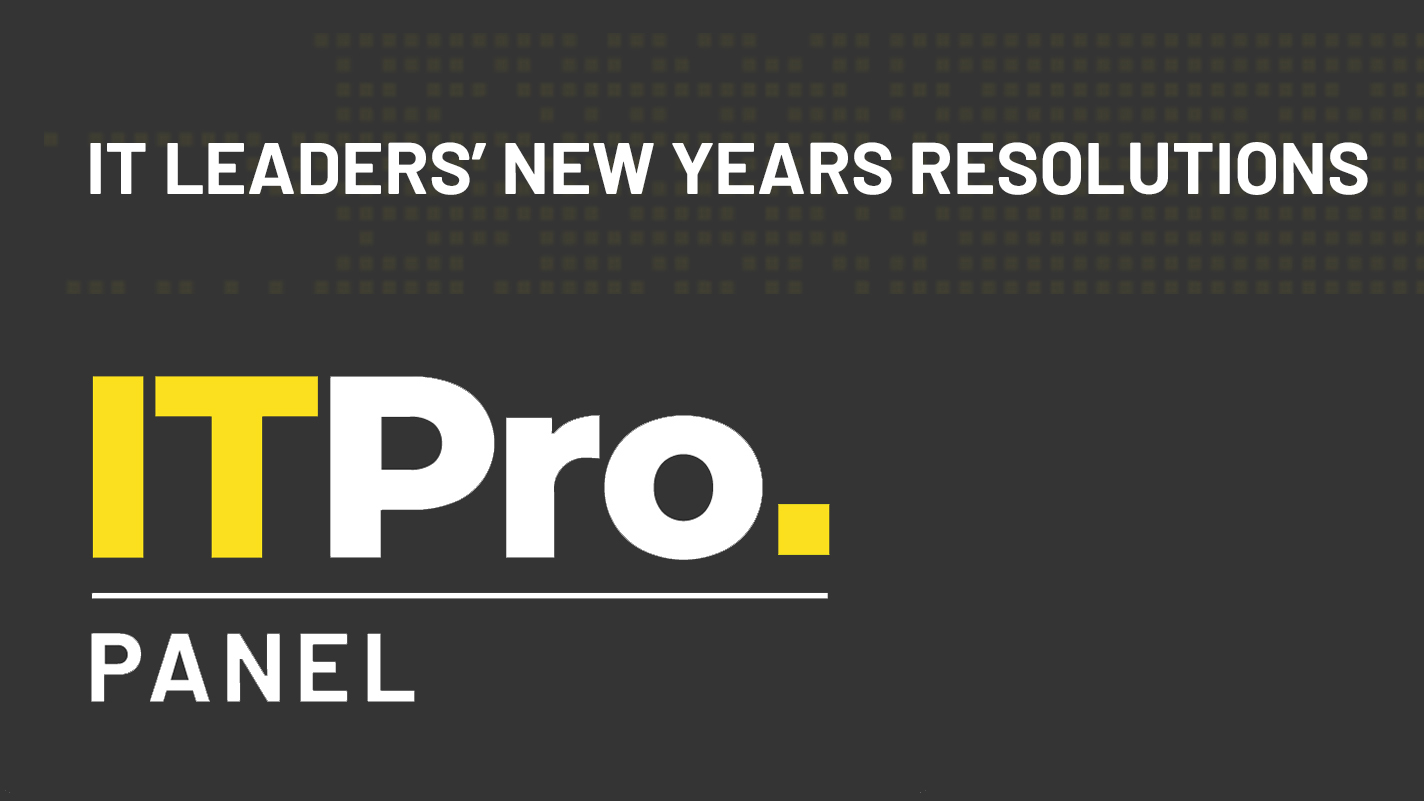

Traditionally, the turning of one year to another is a time for reflection and transformation. It’s the reason so many people make new year’s resolutions, committing themselves to exercising more, or picking up a new hobby. After the challenges of 2020, you could be forgiven for deciding to skip dry January this year, but when it comes to IT, now is the perfect time to take stock and think about making some changes.
In the spirit of new beginnings, for this month’s IT Pro Panel discussion, we asked our panellists about the technology and business commitments they’re making, both in terms of themselves and their organisations.
Tempus fudge it
It perhaps shouldn’t be surprising that the most common theme among our panellists was time management. Although full-time remote working theoretically means a shorter workday thanks to the removal of a daily commute, most professionals (our panellists included) have actually found themselves working more, not less. The already-shaky concept of a work-life balance has also taken a bit of a hit too; it’s hard to leave work at the office when the office is at home.
Reinstating those boundaries is at the top of the priority list for Kantar CISO Paul Watts, who points out that the lines have become “very blurred” over the last year. To help prevent this, he’s started building ‘virtual commutes’ into his daily schedule, allowing him to transition into and out of work mode – something he also encourages his team to do.
“This 'live from work' mentality is setting a bad example,” he says. “Don't get me wrong, there have been some positives too but as a historic office worker, I've been surprised at just how much discipline is required to get the balance right.”
In similar fashion, Newcastle Building Society has begun the new year by banning meetings between 1pm to 2pm, says CIO Manila McLean, as a way to enforce a certain level of down-time for employees. Sending emails before 8AM or after 8PM is also banned. This concept of a ‘meeting-free’ window was also proposed at the Natural History Museum, CIO Alison Davis explains, but the organisation decided to support and encourage this practise, rather than mandate it as official policy.
The last year of remote working was caused some to re-evaluate how they think about productivity in interesting ways. Richmond Events director of IT Liam Quinn, for example, has found that multitasking is actually less helpful than setting aside time for specific things, and it’s something that he has resolved to stop doing in 2021.
Sign up today and you will receive a free copy of our Future Focus 2025 report - the leading guidance on AI, cybersecurity and other IT challenges as per 700+ senior executives
“I’m getting back to switching things off,” he says, “and focusing on one job at a time. I only started last week, but it's been quite revolutionary for me and my productivity has gone up much more than I expected.”
“Similar to Paul, I've started to block my diary into proper chunks, so that I can focus better, but also release time for other things, rather than just working 24/7. It’s things like specific times for meals, but also family time and places where I volunteer. By allocating specific times, I'm not trying to multitask all the time and it's certainly helping me to focus.”
“I agree about the multitasking,” Davis says. “I'm just trying out a reMarkable tablet for note taking which has the benefit of being dedicated to just that, so there aren't the same distractions of doing it on the laptop or a tablet.”
“I share everyone's thoughts on the need for boundaries between work and personal life,” adds Tempcover CTO Marc Pell, “which is quite challenging when work is at home.”
Tempcover is currently grappling with the challenge of making remote conversations less “transactional”, encouraging staff to talk and interact socially, rather than just when they need to gain information or solve a specific problem.
“To be clear, that's not just the organising of yet another quiz (fun as they are), but to proactively push the idea that staff should chat to others for no specific reason. We're finding this to be beneficial to staff wellbeing as well as to maintaining positive relationships between colleagues.”
This is something that many of our panellists are trying to foster at the moment, with various initiatives aiming to recreate the “watercooler moments” that are currently missing from remote working. Tempcover, for example, has instituted company-wide virtual tea breaks a few times a week, while the Natural History Museum has adopted a ‘coffee roulette’ programme where random people within the organisation are paired up to chat over a virtual coffee.
Meeting challenges and challenging meetings
Another big focus for our panellists in 2021 is meetings; specifically, how to effectively manage remote and hybrid meetings on a sustainable basis. For instance, Newcastle Building Society is trying to reduce the pressure for employees to have their cameras on during meetings, and Quinn notes that “we seemed to collectively forget that we did use to have ‘just’ phone calls.”
Davis, meanwhile, is chairing a working group within the museum looking at future ways of working, noting that “we can do ‘all in the office’ and ‘all at home’ but the future doesn't look like either”. As part of this effort, she says, the organisation may look at using it to drive more automated decision making.
“On the upskilling side,” she adds, “I've been trying to walk the talk about meeting improvement and I’ve been reading The Surprising Science of Meetings over the Christmas break.”
“We’ve set up a group similar to the one Alison describes,” says McLean. “The scope will cover operating model, property and tech requirements to enable our colleagues to have flexibility and be effective in their roles.”
“Contacts I speak with across different sectors talk about a nervousness of not being appropriately prepared for the time when we can all return and then missing the opportunity. It could be considered easier to design and implement a new model before the return of the masses but as we all know in IT iteration is key, so there needs to be a balance struck between setting a new model versus allowing for change as we start to see how it all works in practice.”
The key message from all our panellists is that, with working models unilaterally upended by COVID, the main focus for the next 12 months is ensuring that serious thought goes into coming out the other side of this crisis with a model that works for everyone, rather than rushing back into the office or continuing with patchwork, ad hoc remote working frameworks.
“Elaborating on Manila's point above regarding ways of working,” Watts says, “from my perspective, it will be about the fact that the security model needs to adapt to accommodate defence-in-depth for remote and flexible workers. Organisations transitioning from exclusive on-premise modes of operation will soon find that it is impossible to protect the castle and its citizens using a wall and a moat when the citizens spend very little time in the castle any more!”
Perceptive readers may notice that so far, our panellists have spent relatively little time talking about technology in relation to their goals for the coming year, and this reflects an overall feeling that people and process is the principal priority for 2021, as opposed to IT transformation. Even in terms of their personal development, our panellists are much more focused on ‘soft skills’; as Davis says, she’s “always interested in learning, but that's more about leadership, strategy and so on”. Most of her learning comes from networking with other leaders, she explains – although she notes that she does want to practice guitar more.
“Agreed on the point of networking,” Pell adds. “I’ve made sure to organise a few catch-ups with people from other businesses who hold similar roles. Comparing notes is a great way to learn.”
Technical capabilities
That having been said, however, our panellists aren’t planning to eschew technical development entirely. Quinn is planning to get his cloud migration project back on track, after being disrupted by the pandemic. As an events business, his company has been massively impacted by COVID, which has forced it to rethink many of its assumptions around budget and income availability.
“Currently, we have a pure private cloud infrastructure and the plan was to move to a pure public one. However, that needs to be reevaluated,” he explains. “There are parts that are a given – a full move to Office 365 for example. But questions around running an SQL server into Azure, which has a fairly predictable load, is perhaps not as attractive as it once was. It may still be the right decision, but it's not as certain as it used to be.”
He’s aiming to get this project back up and running and make a decision on the direction of the platform in 2021, he says, largely because the delay has meant that elements of the company’s five-year-old infrastructure are now in need of updating, such as its SQL and Exchange capabilities.
McLean, on the other hand, is seeking to complete her organisation’s transition to a DevOps methodology. The company already ran on agile development principles, but the technology team has recently decided to adopt DevOps, and ensuring this cultural change goes smoothly is key, she says.
“These are cool terms that the team all want to get involved in, so encouraging interest isn’t hard, but actually changing the behaviour and way of working is. The way I think best to approach it is to create ‘model teams’ to prove the value and gain buy-in, then to replicate across the next product and so on. The alternative is to restructure in a ‘Big Bang’, but I’m less of a fan of that approach.”
Outside of organisational changes, a couple of our panellists are also teaching themselves some new tech tricks. Quinn says he is finally getting his ITIL 4 certification, while Pell is planning to get to grips with some of the newer technical areas that Tempcover has started exploring. First on his list is React, which Pell knows the basics of but says he’d like to take further.
“Our new web UX uses React, and our new app is built in React Native. The core knowledge opens up the ability to write front-end code for such a range of platforms that it appeals greatly, and it has worked well for us at Tempcover. One core skillset covers the fundamentals of building for web, iOS and Android development!”
“I built a small times tables app with my two children during the first lockdown which was a fun way to teach them and myself,” he says. “I’ve dipped into React tasks for work occasionally too, but I could do with a refresher as well as some learning in the new areas relating to state management.”
These technical projects present an interesting avenue for exploration, but if there’s one thing our panellists have made clear, it’s that 2021 is about establishing solid business processes to cope with a post-COVID world. Technology may be what powers organisations, but evidently, it’s people and process that sustains them.
To apply to join the IT Pro Panel, please click here to enter your details. Please note that we are not accepting applications from technology vendors at this time.
Adam Shepherd has been a technology journalist since 2015, covering everything from cloud storage and security, to smartphones and servers. Over the course of his career, he’s seen the spread of 5G, the growing ubiquity of wireless devices, and the start of the connected revolution. He’s also been to more trade shows and technology conferences than he cares to count.
Adam is an avid follower of the latest hardware innovations, and he is never happier than when tinkering with complex network configurations, or exploring a new Linux distro. He was also previously a co-host on the ITPro Podcast, where he was often found ranting about his love of strange gadgets, his disdain for Windows Mobile, and everything in between.
You can find Adam tweeting about enterprise technology (or more often bad jokes) @AdamShepherUK.
-
 Trump's AI executive order could leave US in a 'regulatory vacuum'
Trump's AI executive order could leave US in a 'regulatory vacuum'News Citing a "patchwork of 50 different regulatory regimes" and "ideological bias", President Trump wants rules to be set at a federal level
-
 TPUs: Google's home advantage
TPUs: Google's home advantageITPro Podcast How does TPU v7 stack up against Nvidia's latest chips – and can Google scale AI using only its own supply?
-
 Protecting CIOs' IT budgets is "paramount" in maintaining business growth
Protecting CIOs' IT budgets is "paramount" in maintaining business growthNews If CIOs are forced to make emergency budget cuts, they should also explain the risks to high level stakeholders so the responsibility is shared
-
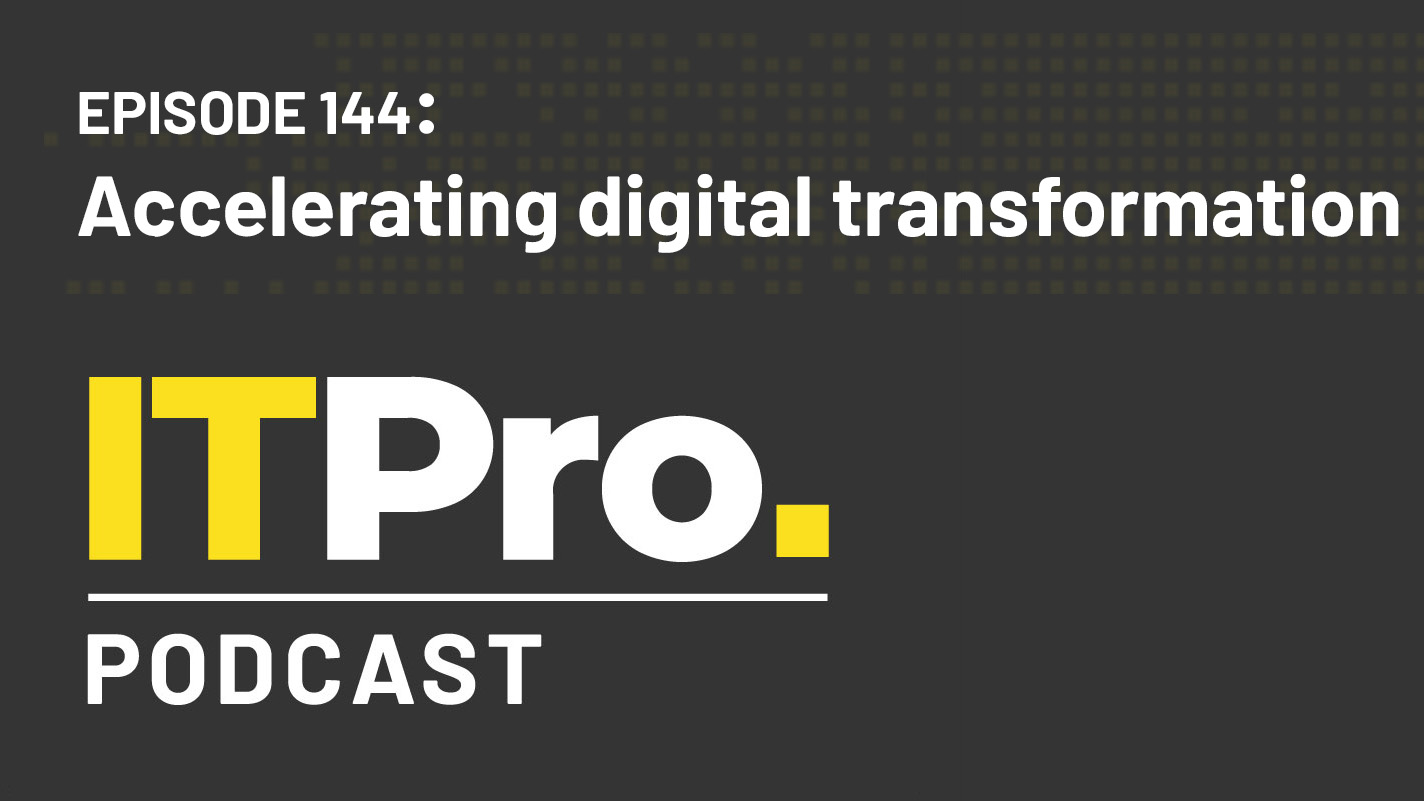 The IT Pro Podcast: Accelerating digital transformation
The IT Pro Podcast: Accelerating digital transformationIT Pro Podcast Implementation is just as important as the value of change
-
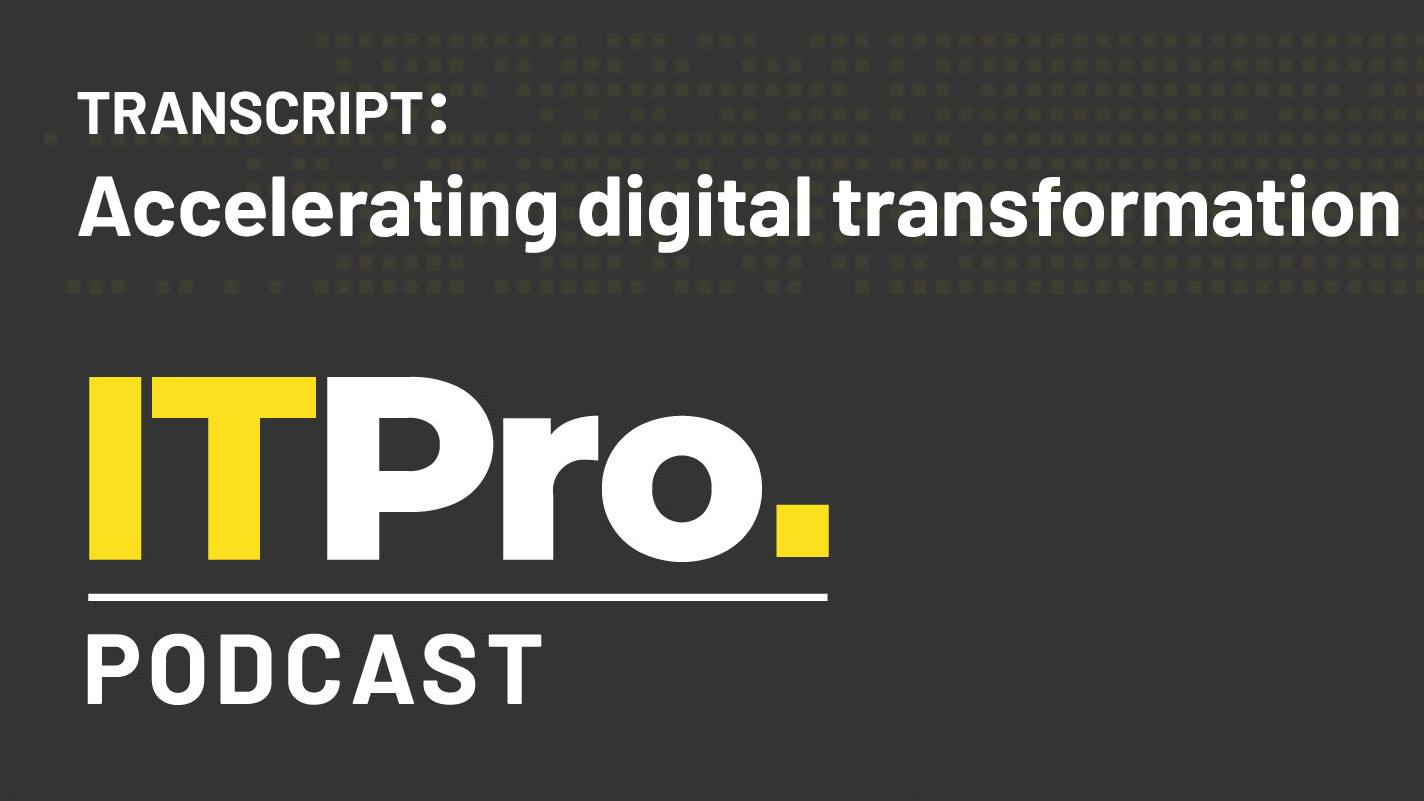 Podcast transcript: Accelerating digital transformation
Podcast transcript: Accelerating digital transformationIT Pro Podcast Read the full transcript for this episode of the IT Pro Podcast
-
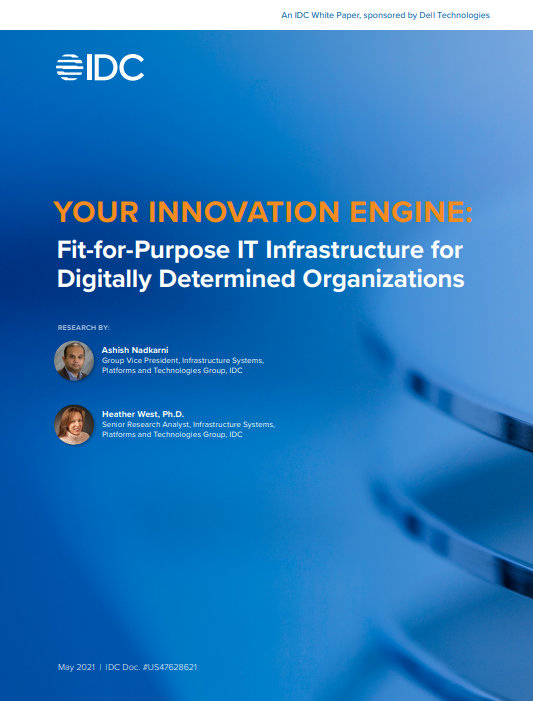 Fit-for-purpose IT infrastructure for digitally determined organisations
Fit-for-purpose IT infrastructure for digitally determined organisationsWhitepaper Your innovation engine: Guiding organisations through change in the new digital economy
-
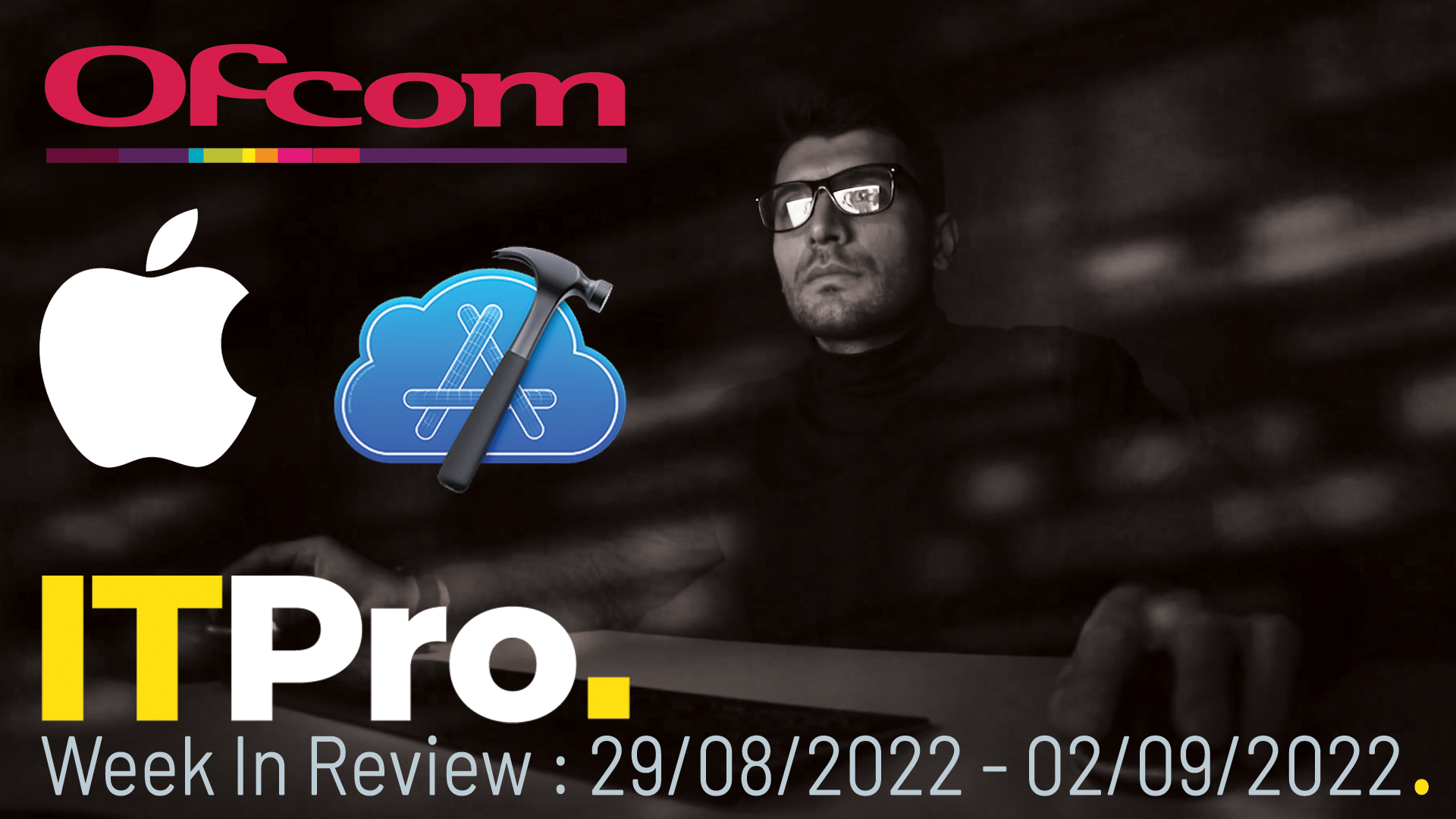 IT Pro News in Review: CIOs face a challenge, Ofcom's telecom fines, Apple expands Xcode
IT Pro News in Review: CIOs face a challenge, Ofcom's telecom fines, Apple expands XcodeVideo Catch up on the biggest headlines of the week in just two minutes
-
 CIO role has 'drastically changed' over last 24 months, says Lenovo
CIO role has 'drastically changed' over last 24 months, says LenovoNews Globally survey suggests chief information officers have greater influence over their company now the role has expanded beyond technology
-
 How can CIOs help to close the tech skills gap?
How can CIOs help to close the tech skills gap?In-depth The most well-equipped IT leaders can take a number of practical steps to close the divide within their organisations
-
 What is a virtual CIO (vCIO) and does your business need one?
What is a virtual CIO (vCIO) and does your business need one?In-depth With tech skills in short supply, organisations are turning to temporary expertise to see through critical digital transformation projects
